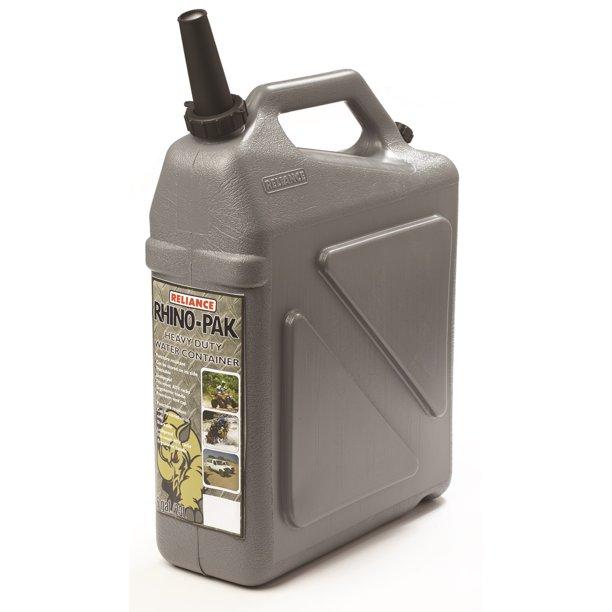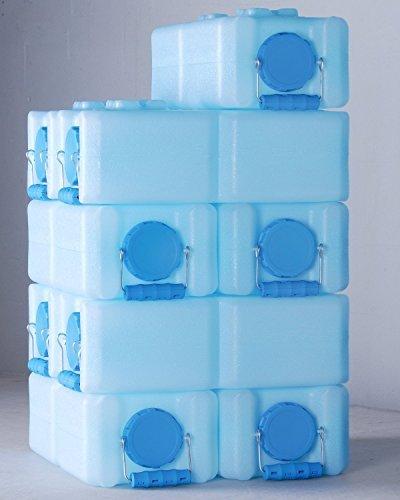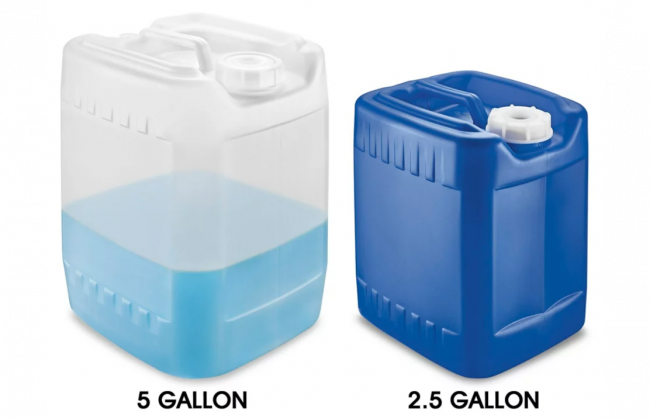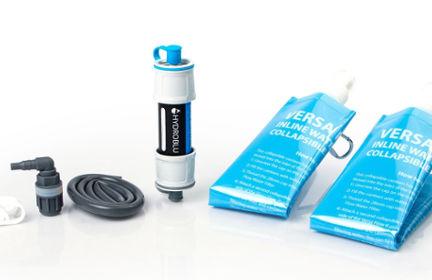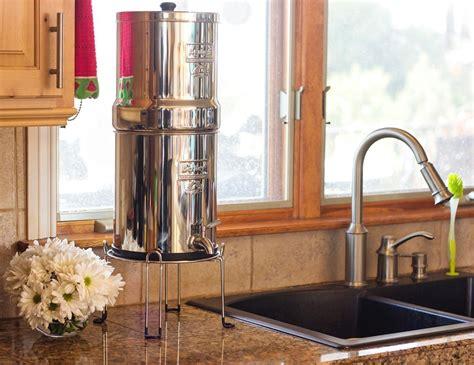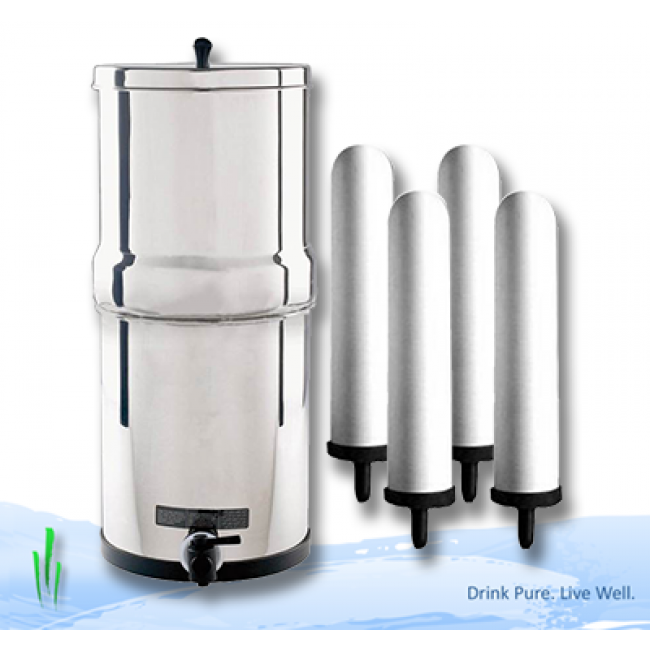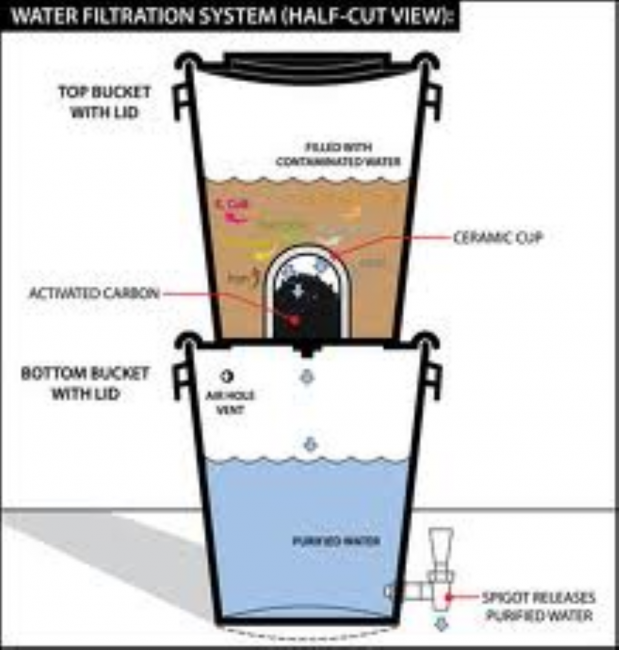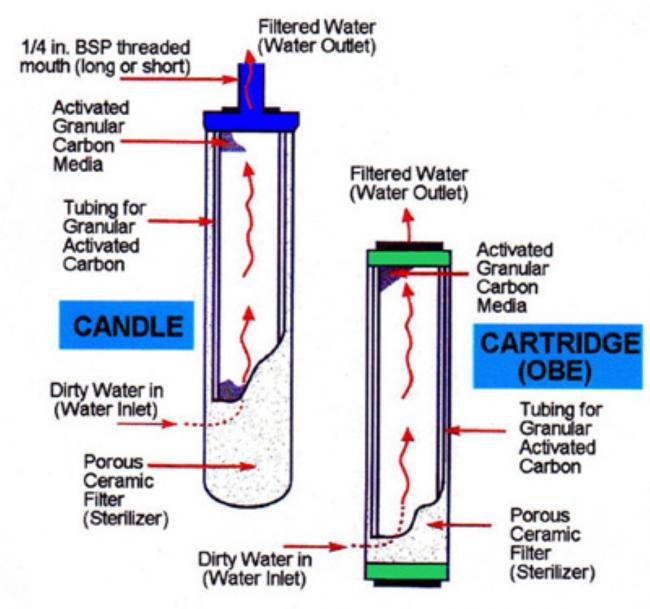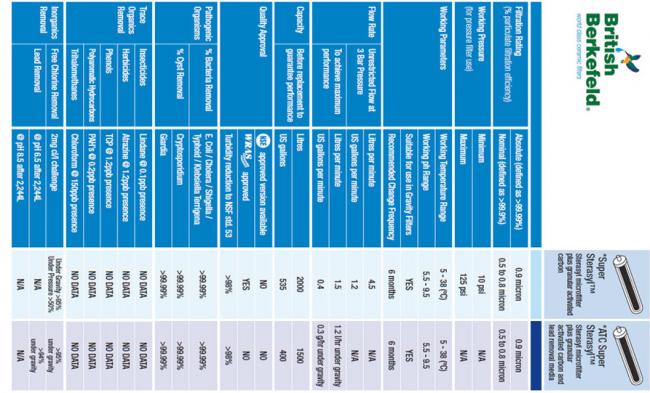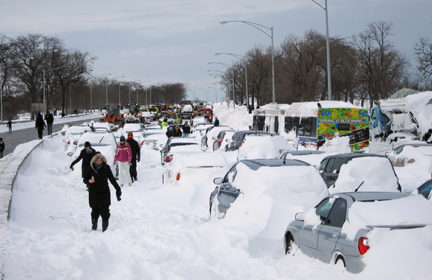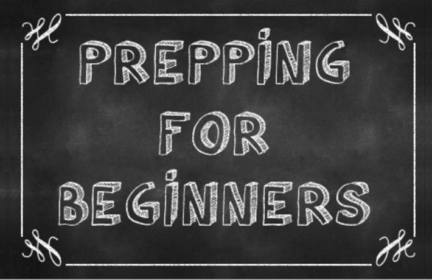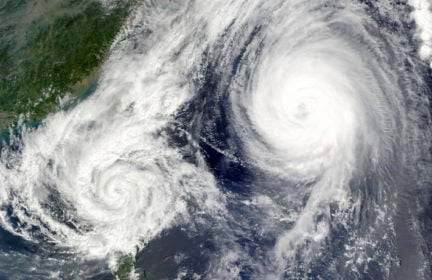Should I start with a bug out bag or preparing my home first? – New and need advice
Hi all, I am very very new to the prepping community. I am a young mom with a son, Husband, and a dog. We live in Canada, my biggest concern is winter, and I am unsure of where to begin.
I have lots of questions, but I will start with the basics. Do I begin with a bug out bag or prepping my home first? This is tricky because we are currently renting till March 2022 and have a limited space for storage. My budget is also minimal as my husband doesn’t totally see the value of prepping at this moment in time. I’m also unsure of what should be my first buys for our climate. Thanks!
-
Best Replies
Adam J Adam J - December 21, 2021
Many great detailed answers here. I wanted to comment on the 1,000 foot view in the original question – prepare to bug in or bug out first? I think you already answered your question by commenting that your biggest concern is winter. You know your situation better than anybody, so if that is your biggest concern, focus on that first, while remaining aware of other potential threats that may develop. Preparedness is simply trying to be ready for things that may not go as planned, and knowing what to do when that happens.
Offering my own preparedness journey over the last year and a half as an example may help a little bit. I started in the spring of 2020 in earnest when I opened my eyes to how things can get out of hand in many different ways. Economics, political, civil unrest, etc. The state I lived in became really crazy politically speaking, a nearby city that I traveled to almost daily and my wife worked in was literally on fire with regular rioting. My small businesses were being choked to death by government overreach, threatening my financial well-being severely. Being very frank, this pushed my mental state to a very dark and very dangerous place. Thankfully, I don’t quit easy, and I decided to take action for the sake of my loved ones.
When I began my journey, my focus was largely bugging out because the threats around me were pretty close. Defense for bugging in was also high on my list, in case I didn’t bug out soon enough. My greatest immediate threat was physical. I experienced a couple of physical threat confrontations in my daily activities that added to my concerns.
Just a couple months in to my journey, I made a pretty radical decision, with the support of my wife. We determined that the place we were both born and raised held nothing good/safe for us anymore. Too many threats from too many directions. We sold out the business assets, sold our home, and moved 800 miles to a small homestead in the mountains. Thankfully, we jumped early enough and made decent decisions that we were able to clear all of a very substantial amount of mostly business debt in the process.
In our new location, where we have been for a little over a year, our focus is on bugging in. I have actually been giving a lot of thought lately about the bug out bags that sit mostly empty, waiting for me to complete putting them together. It is still on my list, which is constantly being updated, but continues to be lower down the list. My reasoning for that is my frequent review of what I consider to be threats to our situation. These threats change from time to time, as does my focus on what to do next.
One final “warning” perhaps – don’t drive yourself crazy trying to do everything to prepare for everything. Think of this as more of a journey or a lifestyle. Simply do a SWOT-analysis (strengths, weaknesses, opportunities, threats) from time to time, adjust your OODA – loop (observe, orient, decide, act), and try to make a baby step forward weekly. At the end of every weekend (I work full time, as does my wife), I look back and think I should have completed 100 more tasks than I actually did around our little homestead. However, when I look back to when we first moved here to where we are right now, I realize that I’m not doing so bad after all at getting things accomplished.
I will add – financial preparedness is critical! We have a budget that tracks every dollar coming in and every dollar going out. We have budget envelopes for prepping, livestock, gardening, along with the every day expenses. We used Dave Ramsey’s very simple and practical envelope method to gain control of this part of our preparedness. Reading The Total Money Makeover by Dave Ramsey lead me to ask that my wife consider reading it as well, which she did. You may possible find this approach helpful in winning the support of your husband too. Financial stability is critical in helping become prepared for any number of threats.
-
Comments (48)
-
Gideon ParkerStaff - November 17, 2021
First off, welcome to the forum! You should have some excellent answers coming in from people very shortly. This is a great and helpful community.
Hope you don’t mind that I expanded the title of your post to help people know what the post is about. Feel free to edit it further if I didn’t catch the spirit of your question.
-
RedneckContributor - November 17, 2021
When I was stationed in North Dakota back many years ago, it was standard practice for each car to have a stash of food, water & maybe a way to heat it. With those winters, there was always a chance of getting stranded in a blizzard. Assuming you have similar, that is the beginning of a bug out bag.
I’d start with just keeping extra food on hand & rotating it out. You don’t have to tell anyone you are prepping. If you normally keep 4 lbs of sugar on hand, keep an extra bag. If you normally have 2 cans of green beans, increase that to 3 or 4. Do it for everything you keep on hand & do it slowly and it won’t hurt so much financially.
Try to keep water on hand in most any containers you can find. Fill them to the point where they can freeze & not rupture the container.
-
Original Man Prepper - December 23, 2021
Excellent suggestions.
-
-
Cat L - November 17, 2021
I would start with prepping your home first as it’s more likely you would be bugging in than bugging out. I live in Canada also and would only leave my home to bug out if there was a major catastrophe, particularly in the winter. Start stocking food and water in your home, little by little as space allows. I remember when I first started buying extra food bit by bit I thought it was far too little and wouldn’t do much, but over time I have been able to stock up quite a bit in our small condo (getting creative with small space has become my hobby).
-
MrsPrep - November 17, 2021
Thank you! How do you store your water? I only have a 24 pack of water bottles. I also don’t want people being able to see a bunch of my prep given the stigma around it. Should I continue with bottled water or go for those massive 10 gallon bottles?
-
Carlotta SusannaStaff - November 17, 2021
Bottled water is generally not recommended because the actual plastic is not meant to last for a long time. A lot of preppers start with something like a 5gal jug, like these:
They stack pretty well in a closet or cupboard. You could also try Water Bricks, which are stackable:
Here are more suggestions, in case it helps: https://preparedpro.xyz/homestead/reviews/best-two-week-emergency-water-storage-containers/
-
MrsPrep - November 17, 2021
🤯 this is perfect! Thanks!
-
Cat L - November 17, 2021
I store water in the 26 litre/7 gallon reliance jumbo containers. They are slim so we have them in closets amongst other things. I even have one beside the tv haha. Not the prettiest but I don’t care 🙂
-
Alicia - November 18, 2021
I like the AquaBricks for their dual handles, portability (only 3 gal) and that they empty more completely from a spigot.
-
BrewIt - January 3, 2022
I use the 5 gallon version. I get them from work, food grade and free. I keep 6 full and fill with fresh water every month or so,
-
Alisa Felix - January 3, 2022
Just curious, if you don’t mind answering, what kind of work do you do where you could get these for free?
If it’s like a restaurant and they just toss them out, should I be reaching out to my local restaurants and asking for them?
-
BrewIt - January 3, 2022
I’m a brewer at a craft brewery. We get fruit concentrate in them.
-
-
Pops - November 17, 2021
You don’t need to be kitted out like Rambo to gain a little peace of mind.
A few days of groceries, then a few weeks. Stuff you already eat. Just buy a bit extra over time.
Provision for light, heat and water could be as simple as a camper’s water straw, some candles and matches and maybe extra blankets.
Just think about what you would miss most, first, if you couldn’t go shopping and buy a little ahead.
-
MrsPrep - November 17, 2021
Do you have a suggestion for the water straw and blankets??
-
Carlotta SusannaStaff - November 17, 2021
I’ll jump in 😉
If you have only one water filtration method, you could go for a portable filter like the HydroBlu Versa (that’s what I have in my BOB): it’s versatile and it will last a long time.
Or, if you want to go for a table-top filter, we’d recommend the Big Berkey (that’s also what we use on a daily basis at home).
These reviews and guides might be helpful:
-
Cat L - November 17, 2021
I have a few Lifestraws. One in my car bag, one in my get home bag, and one in my hiking back pack. I prefer the Hydro Blu Versa (which is in my bug out bag) but Lifestraws are pretty cheap if you’re on a budget, and certainly better than nothing.
-
Pops - November 18, 2021
Hello Mrs., good info from Carlotta,
You can get a Sawyer Mini at Walmart for $20. It’s good for 100k gallons and filters to .1 microns = meaning it can take out viruses, e. coli and all sorts of baddies. It comes with a squeeze bottle.
It can accept a bit of tubing that I’ve rigged up to a bucket so I can feed it by gravity. Don’t worry about that at first. If you are drinking from a mud puddle though, try to pre-filter with some cloth like an old t-shirt so you don’t plug up the Mini.
Also at Wally’s get some space blankets. They’re cheap ($2 or 8 for $10) and the reflected warmth with a little bit of insulation is just awesome. Make sure you don’t tuck it in too tight and overheat and get all sweaty because they don’t breathe.
And speaking of sweaty, if you find some cheap polyester blankets (or whatever man-made fabric) it will dry much faster than cotton and keep you warmer while doing it. Also wool but echk. Do they have old blankets at thrift shops? Looks like Wally has some for $10-20.
Remember the key to insulation is loft—trapped air. So those big fluffy fleece blankets under a sheet or light covering that acts like a “windbreaker” would be awesome.
Finally, if the power and heat is out, build a blanket fort in the front room and have everyone pile in to share their heat.
Keep it simple and cheap:
Plan for anything to happen, including nothing.:^)
-
-
Bill Masen - November 17, 2021
Ma,am you begin with a plan, and your plan normally involves around starting your preps around your home location and working out from there.
In order of priority what are you planning for? then build a plan based upon that primary threat, and expand upon it as time and funds allow to include other threats and hazards
Secure home, intruder, fire and flood protection.
Food, Water, Heating and Lighting BACK UPs
Clothing, Medicines, Hygiene, Water Filtration
Reference materials and comunications
Transport , Logistics and Defence if relevent.
Can you afford $10 to $15 a week? if so you are off to a good start
Dont go out buying ANYTHING until you chat with other preppers to find the most cost effective method of dealing with that issue.
-
MrsPrep - November 17, 2021
Thanks for this! I’ve started with dry beans, grains, and a small 24 pack of water bottles… Because you said talk to other preppers, do you know of compact, warm blankets that would work well in the case that we lose electricity in the winter?
-
Bill Masen - November 17, 2021
Here in the UK we can often get micro fibre fleece sheets, some mums go to outdoor shops and buy inexpensive 1 sq meter soft fleece comfort blankets for infants and sew them togther to create very compact adult fleece blanket warmers.
-
Bill Masen - November 17, 2021
OK Rule 1, Buy what you eat, then eat what you buy.
Dont buy foods the family does not normally eat. In a crisis or disaster eating familiar food is a great emotional comfort. its better to gradually build up stocks of foods with decent shelf lifes that the family are familiar with and like.
Bottled water is OK BUT getting some empty LARGER water containers often 1 to 3 litre bottles and save up for a Berky or Berkfield gravity water filter is a better more sustainable and cheaper option. Indeed if you can source some of the filter candles themselves you can make your own highly effective water filter, meaning you dont have to buy any more water.
-
-
Matt Black - November 17, 2021
Hi, MrsPrep. Welcome.
Where you’re going to start is a place called threat modeling. What scenario(s) are you preparing to survive?
In the case of Winter, your best bet is to start at home and start with the basics. Home will be your base of operations, the place where you hunker down while the weather outside does its thing. You’re starting here because your home -whether a house or apartment or condo- can hold a lot more than a bag. Not to mention that home is a heck of a lot safer than exposure to the elements or getting lost and dying outdoors in a blizzard. There are quite a few posts here that focus on apartment-sized prepping. Seek them out and you’ll walk away with a lot of good ideas.
And even if your scenarios potentially call for prepping a GO bad, you’ll want to start researching the kinds of bags, what to pack, etc. before you save enough to purchase. So, while you’re doing that and squirreling away funds for those things, you’re still preparing for the inevitable Winter.
TIP: Here’s something I’ve done since I started prepping. Instead of actual gifts, I ask for gift cards, for all occasions. This is an excellent way to pool those resources and make that money work for you. So, while you tell your family and friends that you’d rather get a gift card, hop on Amazon (or wherever) and start your wishlists. As holidays, anniversaries, and birthdays roll around, you can check items off your prepping wishlist. In the meantime, use what you have available to you -until you can upgrade.
The escalating climate crisis is going to be a challenge for all life on earth. Even if the current models turn out to be a little ‘off’, conditions will become more erratic over the next decades, worse than the changes you and I are already seeing. We’re not ‘there’ yet, so (for the time being), I think it’s wise to prepare for Winter as you normally would. Make sure you have stock of essentials for your home (water, food, first aid, sources of heat).
Stock your vehicle with 3 day rations per person (and furry family member), a container for melting snow and a source of filtering water. You’ll want to pack the vehicle with extra blankets, snacks, and signals (LED flares or old school flares, strips of brightly-colored cloth), flashlights, batteries, extra hats, gloves; hand warmers, rain jacket (or poncho), etc.
As the climate continues to shift wildly, you will want to consider the ways in which weather (and life!) will be shifting. For the west (the North American continent), it means more intense and longer drought and fire seasons. This also means fewer trees and vegetation holding hilly and mountainous soil in place, so, when it does rain, it will trigger mudslides. Just as we recently saw in Alberta and WA. Let’s not forget the toll of drought and fire on crops -food.
For the gulf and coastal regions, it means flooding due to increased storm activity in warming oceans, which are also rising because of glacial melt. In the NE US and Ontario/Quebec, winters will become wetter.
For every place in between, it means mass migration from those fleeing vulnerable areas to safer, more stable, or more livable areas. This will lead to a competition for dwindling resources, like fresh water, food, land.
By the time you’ve reached this point in my response, you might find yourself a little overwhelmed. Everything will seem like a priority to you. It’s easy to spiral and feel like it all has to be done now -right now. It doesn’t because you’re going to be smart about it.
Take it one step at a time. Start simple. Keep it simple. Simplicity leads to clarity and flexibility.
-
MrsPrep - November 17, 2021
That was wildly informative and yes, I was overwhelmed by the end haha I do hope you are a writer! Excellent skills.
Im going to work on my vehicle emergency kit as well. Thank you
-
-
Carlotta SusannaStaff - November 17, 2021
I would start with financial preparedness first, then the home (water and food). Have you looked at the checklist for beginners guide by any chance? I think you’d find it useful.
-
MrsPrep - November 17, 2021
I have! This is where I started! We do have a good amount of savings, about 3 months worth of pay.
-
Carlotta SusannaStaff - November 17, 2021
Fantastic! In this case, you could then move to prepare the home. Usually, this means aiming at having 15 days worth of ready-to-drink water, and food.
Water: As I’ve commented on in a previous post, disposable plastic bottles are not generally recommended because they are not as durable. Your best, long-term net is in investing in a couple of 5-gallon water jugs. Here’s a handy guide.
Food: You can start by implementing the FIFO method (First In – First Out), which basically means buying some extra of what you usually eat, and rotating through your stash. Here are more details on FIFO. And here we help out figuring out what foods to buy.
Winter: If you’re specifically worried about winter, here’s a checklist on how to winterize your home and car. If you get without electricity the gist would be to:
- Make sure you have extra warm layers of clothing and extra blankets.
- Designate a small room to sleep in it. If you have a tent, it’s useful to set up a tent in the middle of the room and sleep in it.
- If you’re using a portable gas heater make sure that you also have adequate ventilation and a working CO2 detector.
- You could also try warming up the tent with a candle.
- Have a camping cooker to cook food on.
- Have extra lanterns, headlamps, or candles for lighting.
-
-
Carlotta SusannaStaff - November 17, 2021
Here are also other great forums threads that might be helpful, especially regarding preparing for winter, and/or potential loss of power:
- Heating your home (without electricity)
- How much cooking fuel for 2 weeks?
- Get home bag for harsh winter conditions
- Any options for cooking indoors when the power is down?
- Let’s talk Texas – how to prep your home for extreme cold
- And a corresponding blog post about winter prep Lessons from Winter Storm Uri and the Texas blackout
- My winter safety kit
- How do you filter air when the electricity is low or non-existent?
- Winter prep check list
-
Alicia - November 18, 2021
Welcome! And as Gideon predicted, you’ve received much advice already. The fact that you’re prepping at all is great. There was a Forum thread on prepping steps that are free (I can’t find the link). Communication planning is one that stuck in my head. Simply think and plan how you’ll communicate or meet up with your son and husband in your winter scenario ( What if your son is at school? You and/or your husband are at work?) There’s sheltering in place and then sheltering in place without utilities/services. Food and water advice Is posted. Don’t forget sanitation which can be challenging. Here’s a thread on handling no trash service. A toilet ring for a 5-gallon bucket with a garbage bag or other temporary ‘outhouse’ may be useful. (There’s a thread on this too) 🙂
-
JennyWren - November 18, 2021
Good morning Mrs Prep.
A lot of great advice has already been posted, a couple of things to think about.
When buying food to store, try and buy your usual brands and don’t buy a year’s worth of anything in one go, as there is a strong liklihood the best before dates will be the same.
I know rotation has already been mentioned, so I won’t add to that.
When choosing new foods to store, try one before you buy lots of it and think about how you could incorporate it into your usual recipes.
Utah State University Extension Office website is without doubt, the best resource for emergency preparation on the internet and I recommend you start there. They offer sound advice on preparing at home and evacuating your property. Their search function is brilliant.
One of their highlights include;
A Guide to Food Storage This has been my Bible. There is also a much bigger and detailed book, but to get you started, this is the one you want. It starts with a 3 day plan and goes all the way up years.
They also have some very good preserving resources.
-
Gideon ParkerStaff - November 18, 2021
I told you that you would receive a large amount of support and help from this community. Aren’t they great?
Hopefully it’s not too much and you aren’t being overwhelmed. Please take your time and do one thing at a time. If you see all the things you need to do it will quickly overwhelm you and you can experience burn out.
Most of us didn’t get to where we are now in a weekend, more like months, years, and decades of work. Just do one or two things a week and eventually you will get there before you know it.
You got this!!!
-
Thekaren - November 22, 2021
Where I live there’s no place to bug out to, so I’m preparing my home. I take a different approach than most; I look at processes, like ‘what do I need to have on hand to do dishes? and most of that you probably already have. Do some ‘what if’ing and ask yourself, ‘how do we keep warm if the power’s out?’ and ‘how do we cook if the power’s out?’ and look at the things you do now and how you’d have to change if the power was out. Plus, do you have enough in your pantry for at least two weeks, including things that you can cook in one pan (meal planning helps because you don’t want to eat mac and cheese for two weeks)? I’ve got two butane-powered stoves, plus some water, and lots of canned and dry goods. I can make spaghetti, chili, pea soup, chicken soup, etc. out of my pantry, and everything I’ve stocked up on is something I can cook with, like lentils and split peas and canned smoked ham, except for the necessities like chocolate and tea :D.
-
LaurenZ - November 23, 2021
HI! I’m pretty new too but you definitely came to the right people. They are amazing and have great ideas. I personally started with my home and car. For the home, a heating source with fuel that is appropriate for your living space (like a wood burning stove, kerosine/propane heater, etc.) that can also work to heat basic food in case the power goes down and you can’t get out of the house for a while due to a snow storm or something. I have a young son as well and, last winter, we had a power outage and our heat didn’t work. We played a game where we took our tent and went “camping” in our living room. It got really warm in our tent, specially if you load it will pillows and blankets, and he had a great time. Follow what others have said as far as food and water supplies.
Make sure your car is ready too just in case. You need a way to get home where it’s safe. Have a basic first aid kit, backup clothes, and car maintenance stuff so that you can be ready.
-
Supersonic - November 24, 2021
You should ask your son if he remembers that time you went camping in the living room. That would have been the coolest thing when I was a kid and I would remember that as a good memory for the rest of my life.
I second LaurenZ’s advice on getting a good car kit.
-
-
jim - November 24, 2021
Quite a few good suggestions have been made.you mentioned that you don’t want others to see your preps. there’s good hiding places, like underneath the beds and sofa.others have mentioned food.but I don’t recall seeing anything about canned comfort food that can be heated . There’s many comfort foods.so it’s a matter of choosing what works best for you and your family.like Mac and cheese. speggettie with or without meatballs.they’ll be nice if you get snowed in.have a gas stove in the kitchen?.does it have a electric light? If so,then keep a long stem lighter on hand. It’ll come in handy during a outage.if the stove is electric.then you might look into propane camp stoves.children need entertainment. especily during a outage.card and board games.sheets and blankets to build a fort.puzzles. coloring books. There’s some outside games that can be played inside.like certain ring toss and bean bag games.then there’s sorces of light during a outage. flashlights,headlamps and lanterns.any coffee or tea drinkers? A percolator for camping works great on kitchen stoves.that I learned years ago.ever shop on line? Might look into solor powered power bank to keep cell phone charged.also might look into buddy heaters.without the fan.a fan that’s built for wood heater stoves works with them.there’s videos on the internet that tells the correct way to use the fans with the heater.i simply place one corner of the base of the fan into the grill of the heater until the fan stays in place.
-
MarcusAurelius - November 26, 2021
@MrsPrep
So it’s easy to become overwhelmed with too much information when first starting. I’ll keep this short and to the point.
- Having a specific disaster in mind helps you prioritize and make decisions. My baseline scenario is a two-week power outage. Yours might be different based on your location and circumstances. Keep it realistic.
- Food and water are good places to start regardless of the specific disaster you choose. Buy a little extra of what you eat every time you shop and develop a deep pantry. A few five-gallon water containers or Water Bricks are a good start.
- Get to know your neighbors if you don’t already. If you develop good relationships with them now, you’ll be able to rely on them when you need to.
Avoid the end-of-the-world scenarios when you are just starting. They’re not going to help you think and plan rationally for the most common scenarios. Focus on the most likely scenarios first.
A few bloggers have a commonsense outlook and sound advice:
https://web.archive.org/web/20150313222934/https://granolashotgun.com/2014/10/01/emergency-preperation-wherever-you-live/ (Sadly, this one is an archived link rather than a live one, but it is what it is.)
Good luck!
-
Peppertheprepper - November 28, 2021
I started prepping when I became a single mom and my fear is around a biological threat (which came in handy at the start of this pandemic) around the time of Ebola (2014) so here is what I did starting out and I’ll try not to be redundant to the other great answers here. I didn’t start with a BOB or house I did both at the same time slowly. I became a coupon queen, and when sales are going on I’ll buy extra. To echo what someone else said though, buy what you eat. I wasn’t thinking as clearly so I bought more spam than I normally eat in 3 years, I only like it every so often, and that ended up being wasted, wish i had spent that on other protein like canned chicken, tuna or even peanut butter. Rotate everything. I’d follow the advice alrdy given about water.
For my BOB I started out with an old backpack and have upgraded thru the years, don’t get something too big that you wont be able to carry. My child has kept a size appropriate bag that they change out every so often. It’s no use to you of you can’t get around with it. Socks would be one of those things that is very important that many don’t think of in a BOB. have a few different ways to make fire and keep them in plastic bags. Think of how you are going to be able to cook and prepare any food you have, I think back to that twitter thread of the texas person whoms brother was a “prepper” but during the ice storm all his preps failed cause he relied on refergeration and didn’t have a non electronic can opener.
For me medical supplies was also important. If you or people in your family need medication or anything of the like see if you can get an extra month supplies here and there (again rotate). Say for a vacation or something of the like. When I started out (and since) I had a biological threat in mind so I also bought N95s gloves etc. But get a couple first aid kits, or make your own. Infections from a cut no matter what you fear will be a big down fall after a collapse.
I’d also start looking into skills, don’t know how to make a good fire learn, sewing (again handy for medical reasons too) learn, making butter out of powdered milk, growing food or hunting, whatever. Take basic first aid classes, learn skills that will help you in the future and something you can trade for. People have a lot of different views on what will be good for trade, which is another thing to think about in the future, a common one is alcohol but a guy in one of my old groups soap was his thing. Either way also try to start a local group even if it’s not exactly a “prepper” group, community will help in hard times. Sorry if any of this was redundant or long winded, good luck on your journey!
-
sewknot - December 2, 2021
I’m a bit late to the party but welcome! Lots of good advice given already, I feel you are now where I started, I tend to dip in and out of prepping but each time I’m a little more prepared than the last! Well done for reaching out and making a start!
I started building my finances and pantry. With regard to your BOB check out the ‘listening to Katrina’ blog posted in one of the other threads. It’s not so much about buying gear as identifying what you need to take and where you keep it so that you cut down the time it takes to prepare to leave.
I read through the blog and even though I hadn’t written everything down I managed to be packed within an hour in a recent situation when I thought I’d have to evacuate. Could it have been quicker? Yes Did I feel panicked? No because I knew where everything was I needed to take.Depending on the age of your son, I would recommend having a bag ready for him. Even just a couple of changes of clothes, comfort item, some snacks and entertainment (crayons, colouring book, toy car) even if you don’t go into the full BOB for yourself yet, just remember to change the clothes out as he grows!
-
Alicia - December 3, 2021
I like how you state it “dip in and out” . This forum has kept me in much longer and deeper…
-
Robert LarsonContributor - December 3, 2021
Sewknot – I used to be dip in and out of prepping like you but just like Alicia said, this forum and site has been keeping me interested and active into prepping more than I ever have been in the past.
There’s nothing wrong at all with dipping in and out over time, because like you said each time you are more prepared than the last. We all have lives and other hobbies beyond prepping so it’s totally good to pick up other skills and activities beyond this.
-
-
Adam J - December 21, 2021
Many great detailed answers here. I wanted to comment on the 1,000 foot view in the original question – prepare to bug in or bug out first? I think you already answered your question by commenting that your biggest concern is winter. You know your situation better than anybody, so if that is your biggest concern, focus on that first, while remaining aware of other potential threats that may develop. Preparedness is simply trying to be ready for things that may not go as planned, and knowing what to do when that happens.
Offering my own preparedness journey over the last year and a half as an example may help a little bit. I started in the spring of 2020 in earnest when I opened my eyes to how things can get out of hand in many different ways. Economics, political, civil unrest, etc. The state I lived in became really crazy politically speaking, a nearby city that I traveled to almost daily and my wife worked in was literally on fire with regular rioting. My small businesses were being choked to death by government overreach, threatening my financial well-being severely. Being very frank, this pushed my mental state to a very dark and very dangerous place. Thankfully, I don’t quit easy, and I decided to take action for the sake of my loved ones.
When I began my journey, my focus was largely bugging out because the threats around me were pretty close. Defense for bugging in was also high on my list, in case I didn’t bug out soon enough. My greatest immediate threat was physical. I experienced a couple of physical threat confrontations in my daily activities that added to my concerns.
Just a couple months in to my journey, I made a pretty radical decision, with the support of my wife. We determined that the place we were both born and raised held nothing good/safe for us anymore. Too many threats from too many directions. We sold out the business assets, sold our home, and moved 800 miles to a small homestead in the mountains. Thankfully, we jumped early enough and made decent decisions that we were able to clear all of a very substantial amount of mostly business debt in the process.
In our new location, where we have been for a little over a year, our focus is on bugging in. I have actually been giving a lot of thought lately about the bug out bags that sit mostly empty, waiting for me to complete putting them together. It is still on my list, which is constantly being updated, but continues to be lower down the list. My reasoning for that is my frequent review of what I consider to be threats to our situation. These threats change from time to time, as does my focus on what to do next.
One final “warning” perhaps – don’t drive yourself crazy trying to do everything to prepare for everything. Think of this as more of a journey or a lifestyle. Simply do a SWOT-analysis (strengths, weaknesses, opportunities, threats) from time to time, adjust your OODA – loop (observe, orient, decide, act), and try to make a baby step forward weekly. At the end of every weekend (I work full time, as does my wife), I look back and think I should have completed 100 more tasks than I actually did around our little homestead. However, when I look back to when we first moved here to where we are right now, I realize that I’m not doing so bad after all at getting things accomplished.
I will add – financial preparedness is critical! We have a budget that tracks every dollar coming in and every dollar going out. We have budget envelopes for prepping, livestock, gardening, along with the every day expenses. We used Dave Ramsey’s very simple and practical envelope method to gain control of this part of our preparedness. Reading The Total Money Makeover by Dave Ramsey lead me to ask that my wife consider reading it as well, which she did. You may possible find this approach helpful in winning the support of your husband too. Financial stability is critical in helping become prepared for any number of threats.
-
Bradical - December 21, 2021
This is very rational and sound advice, and you lived it. Good to hear that you were able to get out of an unsafe situation and have been enjoying your new lifestyle.
My greatest immediate threat was physical. I experienced a couple of physical threat confrontations in my daily activities that added to my concerns.
Do you mind expanding more on this? Just out of curiosity of myself wanting to learn more about how to deal with a situation like this.
-
Adam J - December 23, 2021
In my immediate, regularly traveled area, there were regular protest/roadblock type events. Near me (cities within a 30-60 minute drive), there were riots, fires, mass business thrashings, etc. These incidents did not necessarily push me to the point of relocation, but certainly greatly heightened my awareness. I say that they didn’t push me to the point of relocation because I was aware they were more common in the cities I traveled to/through regularly. My wife worked daily in one of those cities, however, so they were a real threat, in my opinion.
I had one incident that really opened my eyes to the world I was in the middle of. I grew up in a small town, and worked on properties there almost daily. It is an every day America small town of about 5,500 people. While attempting to cross a 4-way stop intersection, I was intercepted and blocked in the intersection for a couple of minutes by an individual in another vehicle, in the middle of the day on a Wednesday, as I went about my daily activity. It was a race-based incident, no question. It was also the first time that I have ever felt the need to put my weapon at the ready in my vehicle. I chose not to brandish it, which likely allowed the situation to fizzle out, but I was being directly confronted at a time and in a place that this shouldn’t have happened, my opinion. I was literally driving to a property to fix a leaky toilet, 1 block from the police station and 2 blocks from the house I grew up in.
This particular incident happened unexpectedly and quickly. I was sitting at the stop sign with the other vehicle approaching his stop sign from my right. The “trigger” for the other driver, apparently, was a group of kids, escorted by a couple of adults, also approaching the intersection on a path that would put them in the crosswalk opposite me, crossing my would-be path. The SUV approaching from my right, looked at me sitting there, rolled through the intersection, crossing toward me to stop across my front bumper, blocking me from any forward movement. He moved his head between direct eye contact with me and the group now crossing the intersection. After they crossed, he remained blocking me a short time longer, then rolled out of my way. While this was going on, I moved my pistol to the ready and checked my mirrors to ensure that I still had the option to reverse direction in the intersection as a means to escape the situation without having to use my pistol, should the incident escalate any further. Thankfully, it didn’t, in part I suspect because I kept a cool head while reviewing all available options in the moment.
It took me a while to digest what happened and why I think it happened, a couple hours actually. The most logical explanation for all of this finally came together for me after a lot of thought. This was during all of the George Floyd rioting, cities nearby were still on fire. I’m white, the group of kids were of all races, the other driver was black. In “normal” times, none of the factors would have even meant anything to me. I was already prepared to let the group of kids cross as well as let the SUV cross the intersection while I did so, he wouldn’t have crossed the kids path in his direction of travel. Yet, given outside circumstances, this every day situation could very well have gone way sideways very quickly. To be very frank and honest, as I went over this situation in my head repeatedly trying to figure out what and why it even happened, it wasn’t until I finally paused to even consider race of all involved that it even began to make any sense to me at all.
This was not the only reason I chose to leave the area of rural NY where I was born and raised, but it contributed to it. Had the situation escalated in the direction that I would have had to use my pistol to defend myself, I would have been ruined, financially and otherwise, due to the gun laws (I held a Concealed Carry Permit too) there. I am thankful that it ended the way it did, it might not have.
-
Bradical - December 23, 2021
I am very glad that the situation ended how it did for you too, like you said it could have ended very badly and ended your life. Scary stuff!
That’s the nice thing about carrying in a car, you can get it ready below the doorline and out of sight of others in case you need it. Thanks for the explanation.
-
Bill Masen - December 23, 2021
Just a brief reminder of a few tactical driving tips.
1 When coming up behind another vehicle NEVER get so close you cannot see the bottom of the vehicle infronts rear tires(tyres). If you can see his rear tires where they touch the road you will have enough room to drive around if trouble flares up.
2 Never drive NOSE first into a blind parking bay, Ideally park so you have the option of driving forwards OR backwards to escape if trouble flares. But if you must drive into a blind parking bay then REVERSE in.
3 Never exit your vehicle unless you have looked all around to ensure no one is close enough to cause trouble
4 Have your key READY Before you approach your vehicle and only approach it AFTER you have looked around to ensure trouble isnt waiting. And keep scanning around you as you approach and board your vehicle.
5 if you are Concealled Carry Permitted always keep you gun hand free, carry your keys / bags etc in your week hand.
6 its often good sense to keep your doors locked in urban areas especially when approaching STOP or YIELD signs
7 If trouble has been reported in your town then turn off your KISS or DOLLY PARTON CD and tune into your local news station. You may hear of trouble before you drive into it.
8 If you think you are being tailed or followed DONT go home, drive to a Police or Sheriffs office.
-
jim - December 23, 2021
9.drive blind when possible/needed.other word’s.all out side lights are to remain off.but yet, when it can be done safely, and when you can avoid accidents and trouble. I’ve known ppl that had kill switch’s that allows them to make sure all outside lights remain off.including the brake lights as well.
-
Robert LarsonContributor - December 23, 2021
Careful with this as you may hit a person, animal, or object. Also it is illegal. But I do see where you are coming from with this tip and the very rare benefit it may have someday.
-
Robert LarsonContributor - December 23, 2021
To know if you are being followed, like from step 8, take four rights around a block and end up right where you were before. That is a sure sign you are being followed.
-
-
phiguru - December 29, 2021
Howdy – Sorry I’m late to the party. I like to think very small and things that may be needed on an average bad day as a way to get started. It makes it easier to explain to spouses that it’s not about being prepared for a zombie hoard, but it’s about being prepared for getting stuck at work late or having to change a tire in Winter.
FYI, I live on the Quebec border in mountains with snow. As folks have suggested, building some reliance in your apartment would probably make the most sense. Maybe you start by just building your pantry a bit – The First In – First Out article gives a great example of this with canned soup.
If you drive – keep a small kit in your car for Winter (tire pressure gauge, emergency triangle, mylar blanket, wool blanket, chemical hand warmers, spare $20 for gas). That’s something that fits under a seat. On your person, perhaps you can carry an extra set of dry socks, a hat, and a granola bar in your bag?(Socks double as mittens when required.)
I have a friend who lives in a very small studio apartment and she uses plastic tubs under her bed for all her storage. Every category of stuff (linens, pantry, clothes) has a tub and she has her bed on very small risers that gave her a few extra inches of height so that she can slide tubs under easily. She uses a bedskirt to keep that storage hidden from view.
One minor warning about water filters – they do not like to freeze. In Winter, this means keeping it inside your coat next to your body until you can dry it out for storage. It’s not a big deal, but it’s something to consider. My Winter filter is an inline because I can tuck it in an inner pocket much easier than a pump filter (excellent for Summer).
-
Gideon ParkerStaff - December 29, 2021
All very good advice and something everyone can and should do.
-
-
- (Official discussion) Rainy day funds and cash on hand - 2 weeks ago
- News of the Week 2024-12-30 - 2 weeks ago
- News for the Week 2024-11-18 - 2 weeks ago
- How to sew and repair a leather glove - 1 month ago
- Moooooooo…Can you rec a powdered milk? - 1 month ago
This forum is heavily moderated to keep things valuable to as many people as possible. Full community policies are here. The basics:
- 1. Be nice to each other.
- 2. Stay focused on prepping.
- 3. Avoid politics, religion, and other arguments.
- 4. No unfounded conspiracies, fake news, etc.
- 5. Debate ideas, not people.
